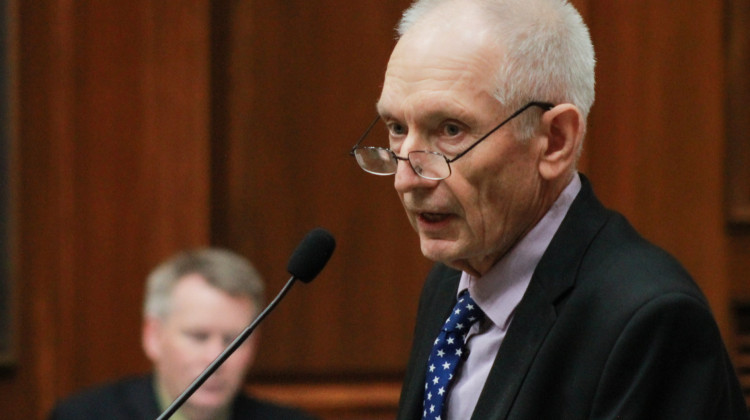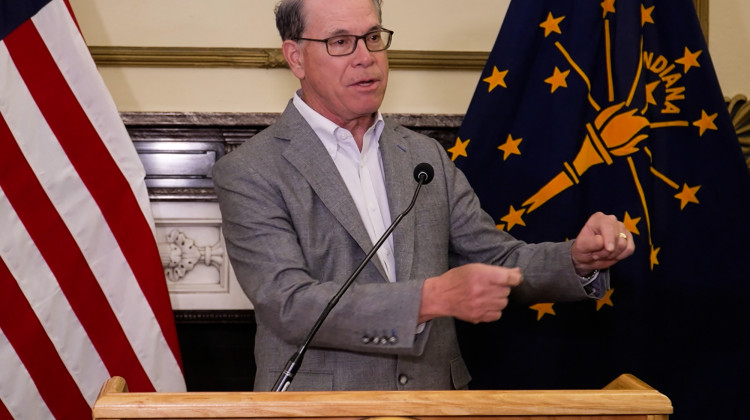
Indiana first passed a law in 2016 that required medical providers to bury or cremate fetal remains, rather than treat them as medical waste.
Brandon Smith/IPB NewsIndiana cannot require medical facilities to bury or cremate fetal remains, a federal judge recently ruled in a lawsuit filed in 2020.
Indiana first passed a law in 2016, HEA 1337, that required medical providers to bury or cremate fetal remains, rather than treat them as medical waste. That law was ultimately upheld by the U.S. Supreme Court. And in 2020, the state followed up in SEA 299 by creating rules and procedures medical facilities must follow for handling fetal remains.
A group of health care providers and anonymous Hoosier women filed a lawsuit that year challenging the rules. Specifically, the women said they don’t believe the fetus is the same as a person and therefore, its remains shouldn’t be treated the same.
Federal Judge Richard Young agreed. He said Indiana is imposing an unconstitutional burden on people’s religious and moral beliefs.
The state argued that it allows people to take fetal remains home and dispose of them however they want, thus not restricting their beliefs. But Young said that still means Indiana is making it “more difficult, if not impossible” to dispose of fetal remains as medical waste, which he ruled must be allowed.
The state also argued that its laws requiring fetal remains to be buried or cremated were meant to benefit patients' mental health. But Young's decision said if that were true, the state would require all fetal remains to be disposed of that way, not just those handled by medical facilities.
"What this really means is that the law is not about its mental health benefits," Young wrote. "It is about preventing people like [the women] from treating their fetal tissue as medical waste."
Contact reporter Brandon at bsmith@ipbs.org or follow him on Twitter at @brandonjsmith5.
9(MDAyMzk1MzA4MDE2MjY3OTY1MjM5ZDJjYQ000))
 DONATE
DONATE








 Support WFYI. We can't do it without you.
Support WFYI. We can't do it without you.